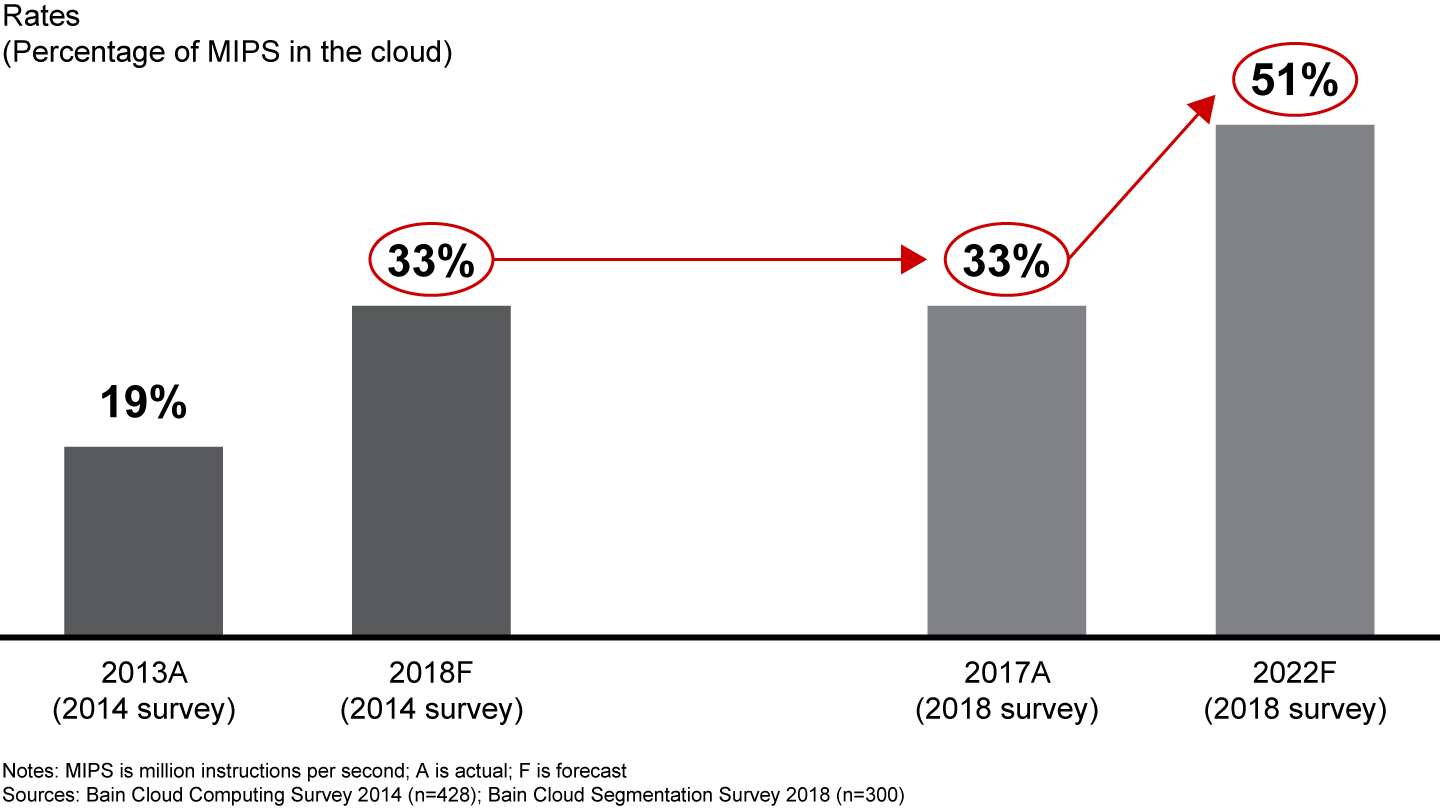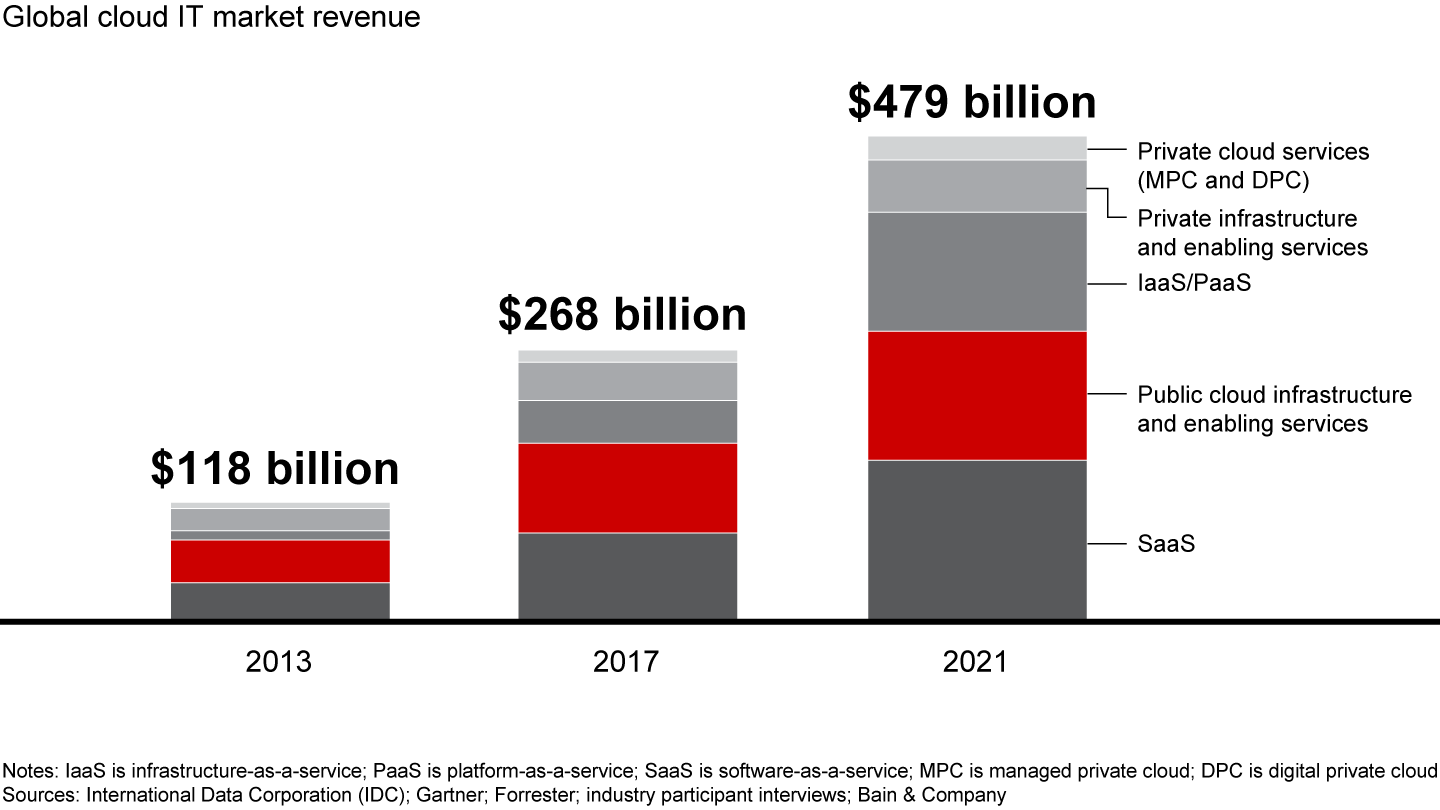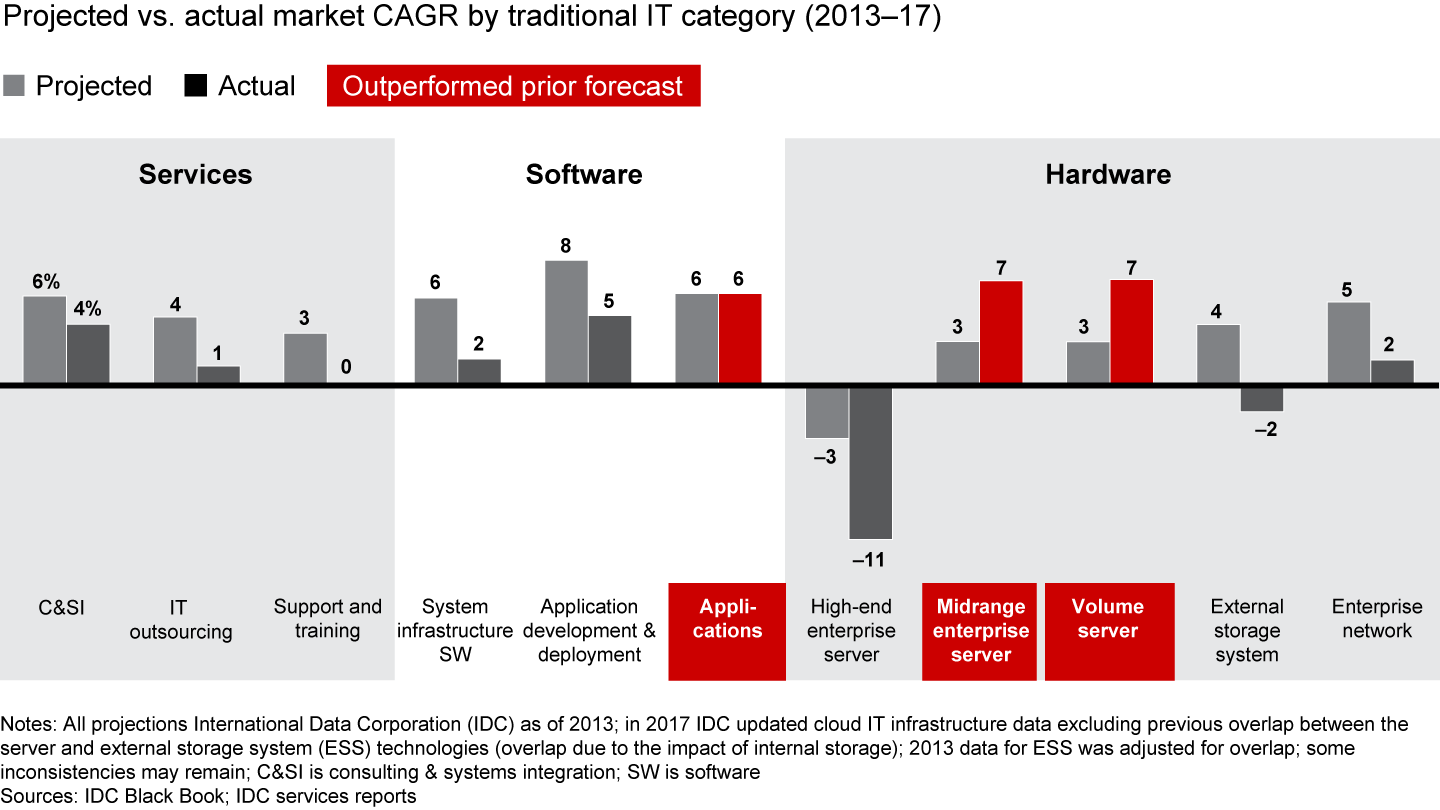Article
 }
}
This is the first in a series of posts on the enterprise cloud market—its economics, customer segments and the opportunities for technology providers.
Cloud services are growing rapidly—faster even than the ambitious forecasts of analysts.
Enterprise customers—bold and cautious alike—are rapidly overcoming their initial wariness of cloud computing. As cloud solutions have demonstrated their reliability, security and heavily advantaged total cost of ownership, more companies are buying, and existing customers are shifting more of their workloads to the cloud. Customers’ plans for further investment in the cloud continue to swell (see Figure 1). Enthusiasm around this growth accounts for some eye-watering valuations of even marginally profitable software-as-a-service (SaaS) companies, many valued at 10 times annual revenue.


Less well known is that cloud’s growth is expected to represent 60% of all growth in the global IT industry through 2021 (see Figure 2).
- Public cloud solutions are expected to account for 88% of that growth, with public cloud infrastructure and enabling services growing at about 9% a year, amounting to $127 billion in 2021.
- Public cloud IaaS/PaaS solutions (infrastructure/platform as a service) could grow by 29% a year between 2017 and 2021, reaching $117 billion in 2021.
- SaaS solutions are seen growing at 16% annually, drawing $159 billion in 2021.


Growth like this is a powerful tailwind for leading cloud service providers and pure plays. Amazon Web Services continues to grow at more than 40% per quarter, and delivered more than half of Amazon’s operating income in Q3 2018. Microsoft’s Azure and Google Cloud are growing even faster, with Azure delivering growth of 76% in Q3 2018.
But public cloud’s success is having a mixed impact on technology industry incumbents that are not leading cloud vendors. From 2013 to 2017, all but three categories of legacy technology underperformed expectations (see Figure 3). High-end enterprise servers saw a particularly tough period: A predicted decline of 3% underestimated the 11% fall that the market actually experienced.


The lone bright spot was the midrange and volume server market, which saw higher than expected growth and continued to accelerate in the first three quarters of 2018. This growth was driven, in part, by white-box manufacturers, but also a resurgence in buying branded gear from original equipment manufacturers (OEMs) like Dell, HP and Lenovo.
Providers in the broader legacy tech landscape can draw lessons from the success of these branded server giants, who:
- harvest legacy franchises to fund new products and business models that enable hybrid IT and multicloud environments;
- pursue inorganic investments to obtain fast-growing assets in cloud markets where they are underexposed; and
- adjust their sales and channel to ensure that their sales model evolves to address cloud demand.
While some technology incumbents are feeling positive about their recent performance, the long-term winners know that they cannot rest easy and assume that the cloud storm has passed.
Mark Brinda and Kate Woolley are members of Bain & Company’s Global Technology practice. They are based in the firm’s New York office.
This is the first in a series of posts on the enterprise cloud market—its economics, customer segments and the opportunities for technology providers.